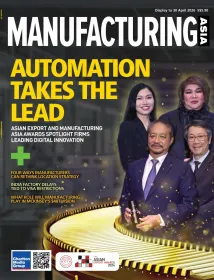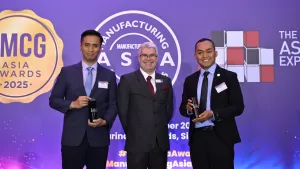
Thailand's auto manufacturing needs new skills, ethics for EV shift
A growing demand for digital skills and expertise in green technologies exists.
Thailand's automotive manufacturing sector needs to adapt to evolving skills requirements and integrate responsible business practices as the industry rapidly transitions towards electric and low-carbon vehicles, according to a new study by the International Labour Organisation (ILO).
The report, titled "Navigating Transformational Changes and Transitions: The Skills Development and Employment Landscape in Thailand’s Automotive Manufacturing Sector," highlights the need to bridge the gap between current skills and emerging demands. Thailand's pivot towards becoming a central hub for electric vehicle manufacturing in ASEAN is driving this demand.
Key insights include the growing need for digital skills and expertise in green technologies, particularly in battery production and vehicle automation software. Ongoing skills development is essential to support a more digital and automated manufacturing environment. Existing training and education programs are insufficient to meet these demands, the report reveals.
To bridge this gap, it is necessary to enhance technical skills and foster a culture of continuous learning and adaptability, crucial for maintaining global competitiveness. Xiaoyan Qian, Director of the ILO Decent Work Technical Support Team, emphasized that reskilling and upskilling opportunities are critical for supporting just transitions in a greener economy.
The study also highlights the importance of integrating responsible business conduct into operations and training programs, ensuring all employees, including migrant workers, understand and implement these practices. Demographic shifts indicate that older workers need additional support to adapt to the advancing technological environment.
Gizem Karsli, Project Manager of the Skills Development and Responsible Business Conduct for Transition initiative, funded by the Government of Japan, stressed that responsible business conduct is imperative as the industry moves towards more sustainable practices. This approach not only mitigates risks but also attracts investment and partnership opportunities.
Tailored training programs that cater to different learning paces and styles are important for ensuring all employees can contribute effectively. Thailand's automotive manufacturing sector, the country’s second-largest export sector, accounted for 14% of total exports in the first nine months of 2023, valued at approximately $27.7b (1.02t Thai baht). Thailand is the largest automotive producer and exporter in ASEAN and the eleventh-largest globally, producing over 2 million units annually.
















